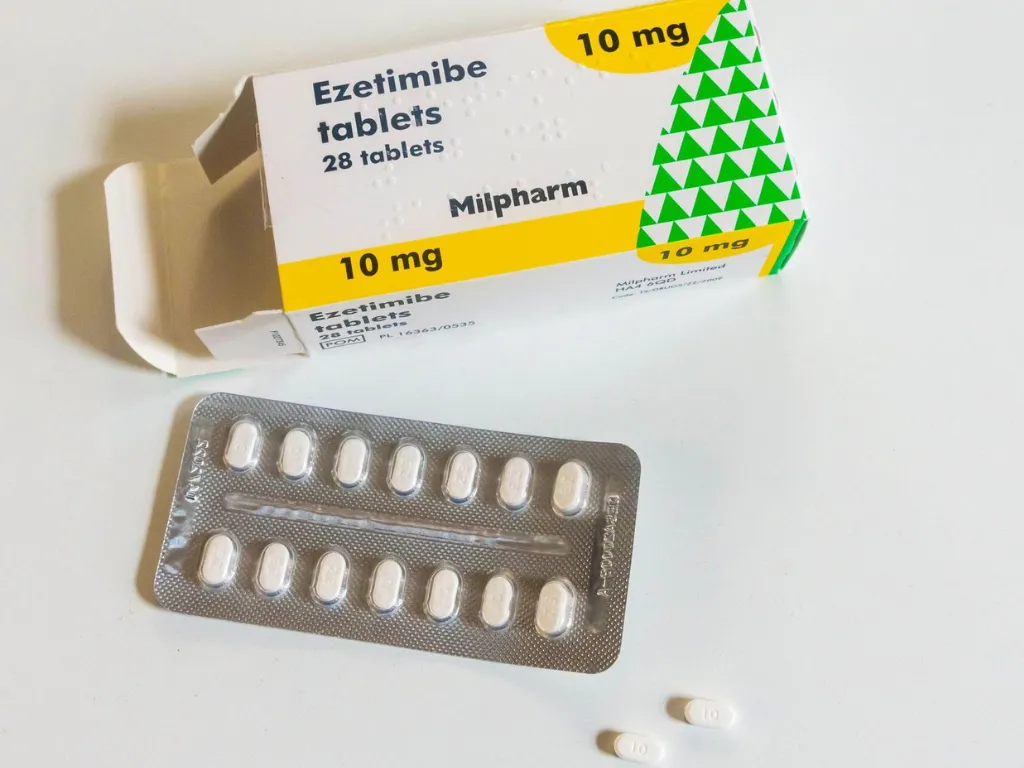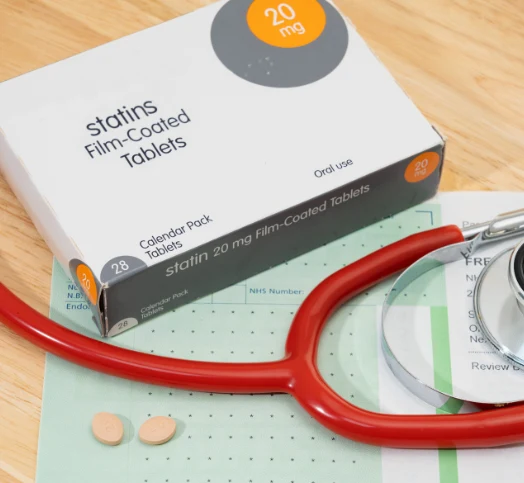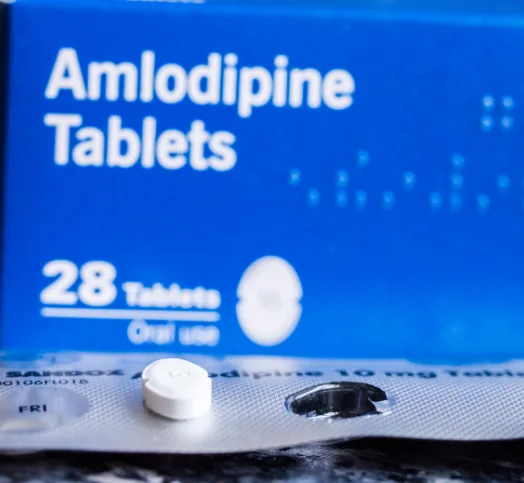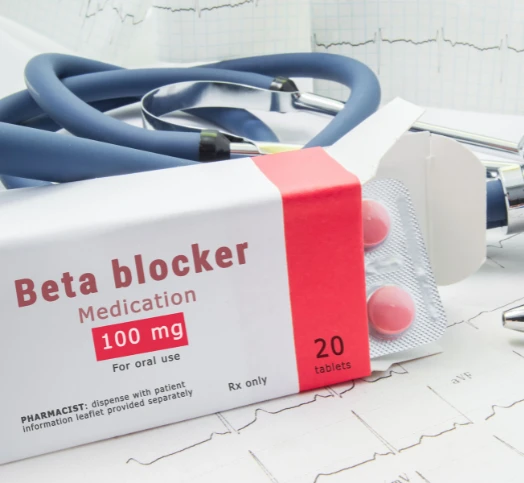Ezetimibe is a medication used to lower cholesterol levels in the blood. It is often prescribed with other cholesterol-lowering drugs, such as statins, to provide additional benefits. It can also be useful in those patients who are intolerant to statins. In this article, we will explore the role of ezetimibe in managing cholesterol levels.
Understanding Cholesterol
Cholesterol is a type of fat found in the blood essential for the body’s normal functioning. However, when cholesterol levels become too high, it can increase the risk of heart disease, stroke, and other health problems. Various factors, including genetics, diet, and lifestyle habits, can cause high cholesterol levels. Please see our cardiovascular risk factors article for further information here.
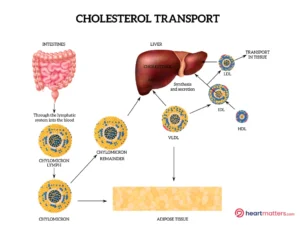
Cholesterol is not only obtained from the foods we consume but is also synthesized within our bodies, predominantly in the liver. The process begins with the absorption of dietary cholesterol and fats in the intestines. Cholesterol travels through the bloodstream through lipoproteins, such as chylomicrons, which carry dietary fats to various tissues. Once absorbed, the liver plays a central role in cholesterol regulation. It produces VLDL cholesterol, which transports triglycerides to cells for energy. As VLDL cholesterol loses triglycerides, it eventually becomes IDL and LDL cholesterol. LDL cholesterol, often called ‘bad’ cholesterol, can accumulate in artery walls, contributing to atherosclerosis. Meanwhile, HDL cholesterol, or ‘good’ cholesterol, takes up excess cholesterol from cells and tissues and transports it back to the liver for elimination. Various enzymes and receptors tightly regulate this intricate cholesterol synthesis, absorption, and transportation balance, ensuring the body maintains optimal cholesterol levels necessary for its vital functions.
How Ezetimibe Works?
Ezetimibe works by inhibiting cholesterol absorption in the small intestine, thereby reducing the amount of cholesterol that enters the bloodstream. This can help lower LDL or ” bad” cholesterol levels while increasing HDL or ” good” cholesterol levels.
Studies have shown that ezetimibe can effectively lower cholesterol levels, mainly when combined with other cholesterol-lowering medications. For example, in a clinical trial involving patients with high cholesterol levels, ezetimibe combined with a statin reduced LDL cholesterol levels by 25%, compared to just a 5% reduction with a statin alone.
Dosing
Ezetimibe is taken as an oral tablet and comes in 10mg strength. It is taken once a day. Various trade names are used worldwide; some are listed below. Ezetimibe can also be combined with statins in one pill.
- Zetia: This is one of the most widely recognized brand names for ezetimibe.
- Ezedoc: Another brand name commonly associated with ezetimibe.
- Ezetrol: This is used in some regions as a trade name for ezetimibe.
- Vytorin: Vytorin is a combination of ezetimibe and simvastatin to lower cholesterol.
Side Effects
One of the benefits of ezetimibe is that it is generally well-tolerated by most people. However, like all medications, it does have potential side effects. Ezetimibe’s most common side effects include headache, stomach pain, diarrhea, and fatigue. In rare cases, it may also cause liver problems, so regular monitoring of liver function is recommended.
While ezetimibe is generally considered safe and effective, it is unsuitable for everyone. People with liver disease or a history of allergic reactions to ezetimibe should not take the medication. It is also essential to discuss any other medications you are taking with your doctor, as some medications may interact with ezetimibe.
Conclusion
Ezetimibe can effectively lower cholesterol levels, particularly when combined with other cholesterol-lowering drugs. While it is generally well-tolerated, discussing the potential benefits and drawbacks with your doctor and monitoring any side effects closely is essential. By working with your healthcare provider and making healthy lifestyle changes, you can help manage your cholesterol levels and reduce your risk of heart disease and other health problems.
